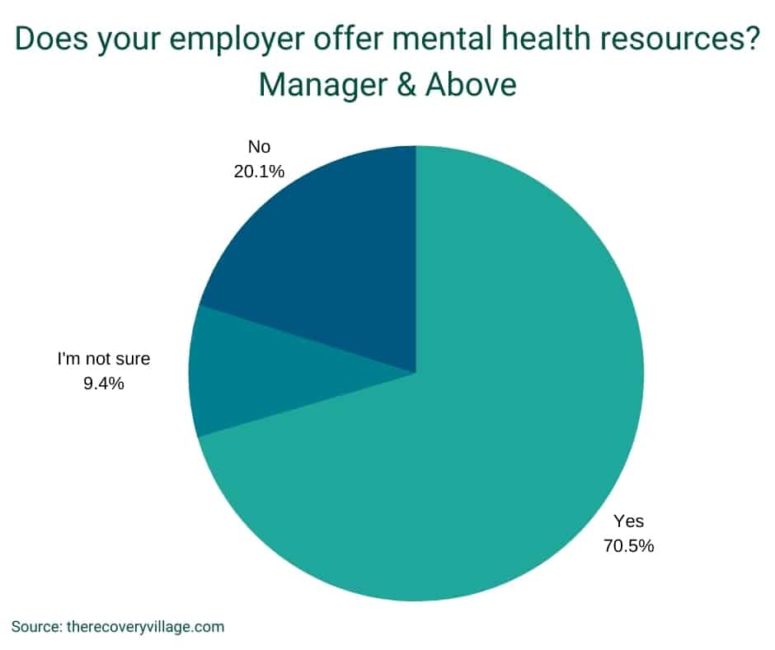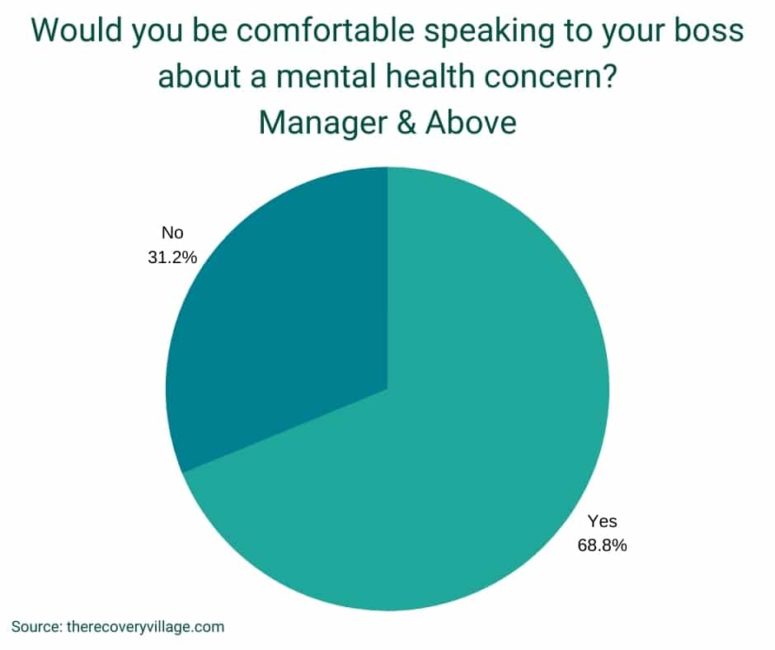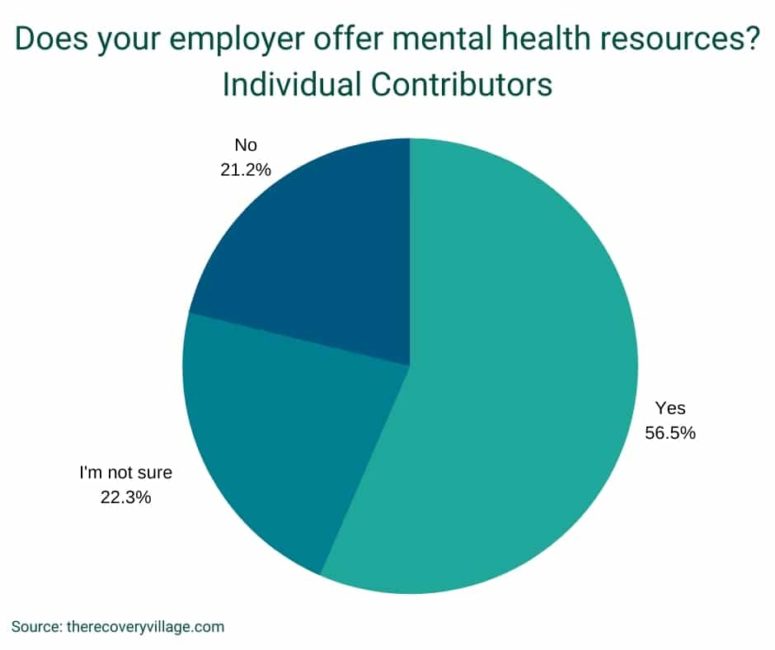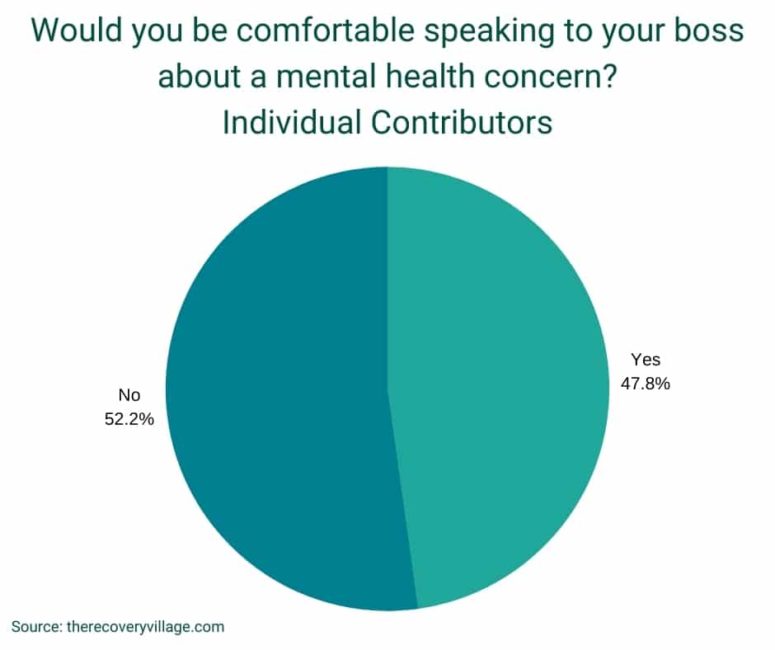Employers Response to COVID’s Impact on the Workforce
We recently surveyed 2,000 Americans about their mental health during the pandemic to better understand mental health trends and available resources, specifically the role that employers are playing.
Here’s How Employers Are Helping – Or Not – Mitigate the Impact of COVID-19 on Mental Health
Fears about COVID-19’s effect on mental health in the U.S. have been well-documented and are well-founded. With many more people reporting mental health symptoms and mental health providers struggling to meet the need across the country, mental health resources and solutions are more important than ever for Americans.
While the vaccine rollout is an important tool in the fight against COVID-19, it’s going to take time to deliver nationally. In the interim, the coronavirus pandemic will continue to affect mental health and our lives, including our work life.
We recently surveyed 2,000 Americans about their mental health during the pandemic to better understand mental health trends and available resources, specifically the role that employers are playing. We found that in addition to reporting experiencing widespread mental health symptoms, employees at different levels of their organizations had different perceptions, comfort levels or even access to mental health resources.
COVID’s Impact on the Workforce
We surveyed 2,000 U.S. residents who are currently employed about their mental health and use of drugs and alcohol in the past 6 months.
Note: Some questions asked respondents to select each option that applied, so in a few instances, the total percentage will be greater than one hundred.
Participants were asked about their mental health over the last 6 months.
- 75% reported experiencing mental health symptoms including:
- 76% reported feelings of anxiety/nervousness
- 66% reported feeling stressed
- 64% reported depression or loneliness
- 61% reported sleep issues
- 41% reported anger or agitation
- 54% have been diagnosed with and/or treated for a mental health condition
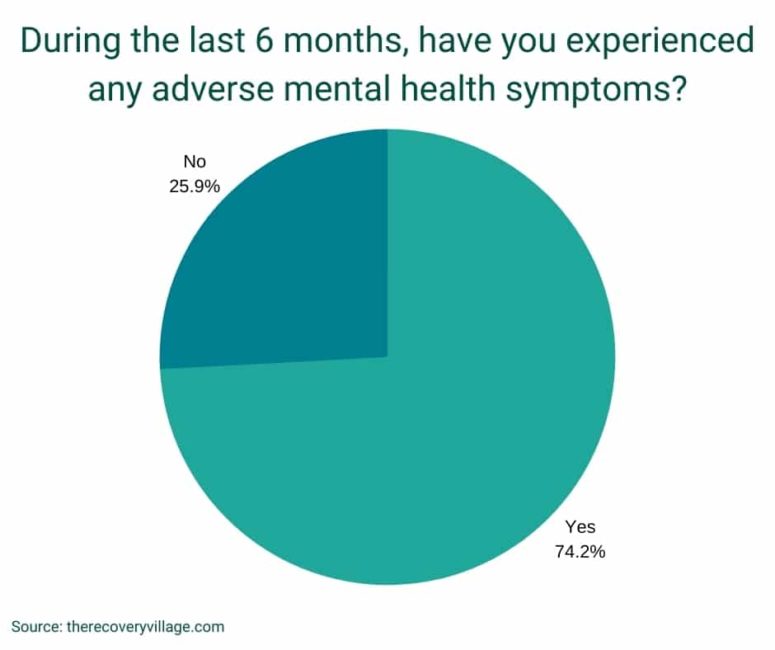
Facing a Mental Health Challenge in the Workplace
Even before the coronavirus pandemic, the U.S. workforce was already facing a mental health challenge. We know that mental health impacts companies and investing in mental health benefits reaps rewards:
- 78% of employees miss work due to mental health concerns.
- Over 80% of employees treated for mental illness reported improved levels of work efficacy and satisfaction.
- A Deloitte study found that companies implementing major mental health preventative programs received a 162% return on their investment over 3 years and a 218% return for programs lasting over 3 years.
With the added strain of COVID-19 lingering, some employers are contributing to meet the need.
- 64% of survey participants said their employers offered some type of mental health resources
- 47% said their employer provided mental health resources as a direct response to the COVID-19 pandemic
- 55% reported using provided mental health resources
- 89% would be comfortable using the provided resources
- 60% said they would be comfortable talking to their boss or employer about a mental health challenge
- Almost 75% said their company’s culture supports their health and wellbeing
While our survey results were encouraging, they still highlight an important need for both resources and destigmatizing mental health concerns in the workplace. Our results indicate up to 32 million workers don’t have access to employer-offered mental health resources. Even though mental health symptoms were widely reported, 40% – up to 64 million workers – said they would not be comfortable sharing a mental health challenge with their boss or employer.
Closing the Gap for Frontline Workers
Workers across the board reported experiencing adverse mental health symptoms but there were big differences when comparing the available resources and perceptions of individual contributors and managers and above. Employees that are managers or above were more sure of the resources available and more comfortable using them.
- 70% of managers and above said their company offered mental health resources compared to 57% of individual contributors
- 22% of individual contributors were unsure if mental health resources were offered compared to just 9% of managers and executives
- Just 31% of individual contributors reported using the available resources compared to 70% of managers and above
- 83% of managers/executives knew their insurance covered those resources compared to 57% of individual contributors
- 32% of individual contributors were unsure if their insurance covered the available mental health resources compared to just 8% of managers who were unsure
- 69% of the manager/executive group reported they were comfortable speaking with their boss or employer about a mental health issue compared to 48% of individual contributors who said the same
- 67% of individual contributors agreed that their company culture supports their health and wellbeing vs 80% of managers and above
These results suggest there’s much more to be done to support the mental health care needs of individual contributors with the potential for a huge positive impact. According to a Harvard Business Review analysis of U.S. Bureau of Labor Statistics labor data, there were 111 million Americans workers who are not managers, supervisors, and administrators in 2014.
It’s possible that these frontline employees may not be aware of the full suite of options their companies are providing to support mental health and simply increasing communications can help close the gap. Employers can also take a hard look at the available resources they’re offering at all levels of the organization and make sure they’re adequately investing in their frontline workforce. Given the larger share of the workforce these employees occupy versus management, employers have an opportunity to make a big impact on the health and productivity of the team members.
Mental Health Resources Are Available to Help Employers Meet the Needs of their Teams
With rising awareness and increased understanding and acceptance around mental health, employers will be facing increased expectations to be supportive and offer resources. 73% of survey participants said they expect their employers to offer mental health resources.
Historically, employers have used employee assistance programs (EAP) to provide support, but additional options have emerged in recent years including apps and increased acceptance of time off for mental health reasons (mental health days).
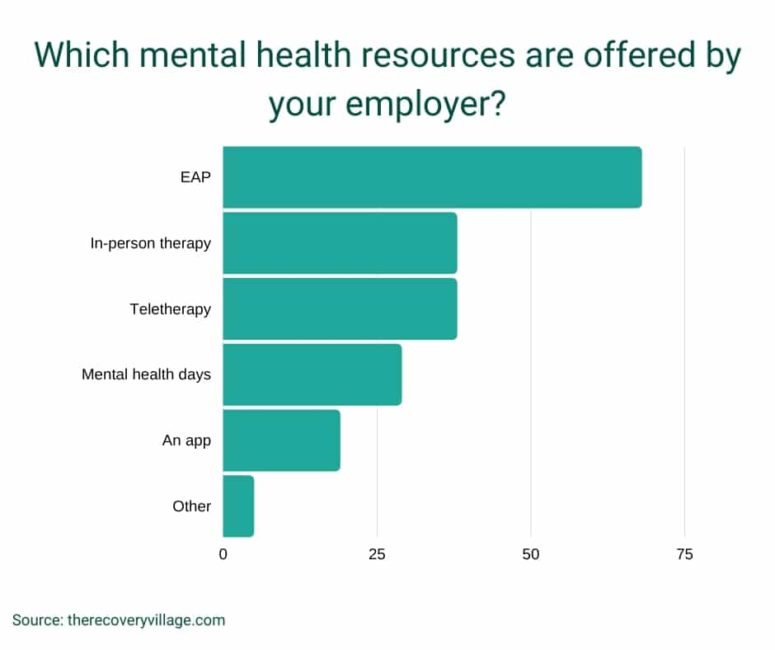
Employers seeking to provide support through digital offerings like apps and teletherapy should take care to ensure that the content shared or counseling offered is created and delivered by licensed mental health clinicians and other professionals. This ensures that your organization is providing high quality, evidence-based solutions and support. It also helps foster trust among employees that the offered resources are legitimate, effective and reliable.
Contact us to learn more about new or even supplemental options that can complement your existing mental health resources. Our team can work with you on a solution that offers a spectrum of resources to meet the full range of your team’s needs.
For press inquiries, email [email protected]
Other COVID-Related News & Resources
- COVID Resource Center
- Does Income Level Help You Cope With COVID-19?
- Survey Shows Drug and Alcohol Use on the Rise During COVID-19 Pandemic
- Kids Anxious About Going Back to School After COVID
- Mental Health in the Time of COVID-19
- South Florida Residents Experiencing “Coronavirus Anxiety” As Pandemic Lingers On
- Is COVID-19 Fueling the Next Opioid Epidemic?
Kangasniemi, Ariel; Maxwell, Laura; Sereneo, Marie. “The ROI in workplace mental health progr[…]e, good for business.” Deloitte, November 4, 2019. Accessed February 3, 2021.
Renner, Rebecca. “COVID-19 is taking a heavy toll in Ameri[…] health-care deserts.” National Geographic, December 30, 2020. Accessed February 3, 2021.
The Lancet Psychiatry. “COVID-10 and mental health.” February 1, 2021. Accessed February 3, 2021.
Hamel, Gary and Zanini, Michele. “Excess Management Is Costing the U.S. $3 Trillion Per Year.” Harvard Business Review, September 5, 2016. Accessed February 4, 2021.
The Recovery Village aims to improve the quality of life for people struggling with substance use or mental health disorder with fact-based content about the nature of behavioral health conditions, treatment options and their related outcomes. We publish material that is researched, cited, edited and reviewed by licensed medical professionals. The information we provide is not intended to be a substitute for professional medical advice, diagnosis or treatment. It should not be used in place of the advice of your physician or other qualified healthcare providers.
